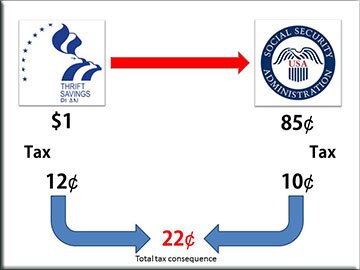Content
- Types of decision support systems
- Business intelligence systems: state-of-the-art review and contemporary applications
- Want to know about our Data Analytics services?
- Service-oriented technology and management: perspectives on research and practice for the coming decade
- Alignment on company-wide goals
- Reconciling business intelligence, analytics and decision support systems: More data, deeper insight

Examples of documents accessed by a document-driven DSS include policies and procedures, meeting minutes and corporate records. 1000minds is an online suite of tools and processes for decision-making, prioritization, and conjoint analysis. It is derived from research at the University of Otago in the 1990s into methods for prioritizing patients for surgery. These include regression models, time series analysis, and other models used to analyze business conditions and make plans. Decision support systems are generally recognized as one element of business intelligence systems, along with data warehousing and data mining.
Predictive Analytics Best Practices eWEEK – eWeek
Predictive Analytics Best Practices eWEEK.
Posted: Thu, 16 Mar 2023 22:46:39 GMT [source]
While previous works focus solely on the https://adprun.net/s of such misclassifications, our decision model highlights implications for payment structures, service levels, and – ultimately – the net present value of such data-driven service offerings. Our research suggests that predictive power can be a major factor in selecting a suitable payment structure and the overall design of service level agreements. Therefore, we compare common payment structures for data-driven services and investigate their relationship to predictive power. We develop our model using a design science methodology and iteratively evaluate our results using a four-step approach that includes interviews with industry experts and the application of our model to a real-world use case.
Types of decision support systems
Different kinds of decision support system can improve a company’s decision-making capabilities in a variety of areas. For example, models can be helpful for understanding systems that are too complicated, too expensive or too dangerous to fully explore in real life. That’s the idea behind computer simulations used for scientific research, engineering tests, weather forecasting and many other applications. This no-code service automation software for enterprises uses a drag-and-drop interface for building applications with customizable rules, decision-tree logic, calculations, and weighted scores. The flexibility of the DSS is extremely beneficial for users who travel frequently. This gives them the opportunity to be well-informed at all times, providing them the ability to make the best decisions for their company and customers on the go or even on the spot.

Please be aware that we do not take any responsibility for accessing such information which may not comply with any legal process, regulation, registration or usage in the country of your origin. The review of early DSS literature and citation patterns in BI&A papers along with our reconciled architecture led us to identify research gaps in BI&A literature than could be advanced with a DSS-informed agenda for future research. In this section we present these gaps and a research agenda leveraging the proposed classification and relevant foundational DSS papers that have not been utilized in BI&A research. Insights develop through clustering, cycle-time analysis, root cause analysis, control charting, etc. Used by most of the top employee benefits consultants in the US, Shortlister is where you can find, research and select HR and benefits vendors for your clients.
Business intelligence systems: state-of-the-art review and contemporary applications
The system comes with a variety of powerful tools to enhance the decision-making process on behalf of healthcare practitioners. The tools offered by the clinical decision support systems include alerts, reminders, patient’s history, discharge summaries, and various other high-utility tools. Most of them leverage the machine learning algorithms, whereas, others may incorporate a precise knowledge base to analyze and filter patients’ data for healthcare practitioners. Hospital decision support is made possible through StrataJazz’s decision support tools in healthcare, alongside cost accounting, contract analysis, and consulting. Strata Decision allows our customers the guidance of trusted professionals in the industry who can offer maintenance and maximum utilization of StrataJazz, while saving decision makers’ time in decision support in healthcare.
- These integrate with contract service provider data for greater visibility into contractor operations and support for regulatory reporting.
- 1000minds is an online suite of tools and processes for decision-making, prioritization, and conjoint analysis.
- It wouldn’t be wrong to say that CDSS reduces repetitive testing and improve patient safety.
- Enabled by data and technology, our services and solutions provide trust through assurance and help clients transform, grow and operate.
- Geared for midsize/large companies, Parmenides Eidos provides visual reasoning and knowledge representation to support scenario-based strategizing, problem solving, and decision-making.
- While previous works focus solely on the costs of such misclassifications, our decision model highlights implications for payment structures, service levels, and – ultimately – the net present value of such data-driven service offerings.
Health systems are aware that clinical variation opportunities exist within their systems, however, oftentimes lack the data insights to uncover possible drivers of their quality, safety or efficiency outcomes. Learn how to aggregate EHR data to drive clinical variation improvement by tying interventions to outcomes. Discover opportunities to implement order set interventions and alerts, monitor corrective adjustments and benchmark performance over time. Physician engagement is key to leveraging your decision support system in healthcare to the fullest. Decision support systems are well-established types of information systems with the primary purpose of improving decision making based on data and analysis . However, some authors claim that the research field of DSS is no longer current or of interest and has been replaced by the newer fields of Business Intelligence and Analytics (BI&A) and Big Data to enhance decision making .
Want to know about our Data Analytics services?
Dr. Mark Meyers, Vice President of Performance Excellence at Temple University Health System, explains how his facility realized a 35% reduction in readmission rates by multi-visit patients using Vizient Clinician Decision Analytics. Advanced calculations across different databases by means of an easy-to-use drag and drop interface. Enhanced workforce effectiveness and productivity thanks to the possibility of performing a more in-depth and fast data analysis.
Spreadsheet Oriented DSS − It contains information in spread sheets that allows create, view, modify procedural knowledge and also instructs the system to execute self-contained instructions. Electronic health records, medical equipment, customers and their wearable devices, and a variety of other sources. Communications-driven DSSes help users to conduct meetings and otherwise work together on a shared task. Clinician Decision Analytics brought to you in partnership with Phrase Health, is a technology offering that complements the Vizient advisory and clinical analytics portfolio and allows you to dive deeper into known variation opportunities. Combined with our Clinical Data Base and quality consulting expertise, Vizient® can deliver new and unique insights in clinical variation.
Service-oriented technology and management: perspectives on research and practice for the coming decade
Legacy BI tools severely limit the access, exploration and analysis of data to a small number of technical elite in a business. What self-service BI tools aim to do is open up the ability for regular business users to be self-sufficient in their data needs. However, the concept of self-service analytics is understandably still new to many businesses, including what benefits it brings. In this article, we list 5 key benefits of self-service analytics, to help your team understand how it helps, and why you need it today. Whether it is financial market analysis, health-related research, environmental protection, fraud detection or energy exploration, the government is using big data to improve services and satisfaction in all the public services fields. One of the best examples of using data analytics and data science techniques is food and drug administration to identify and analyze patterns related to food-related diseases and illnesses.

Farmers use DSS to help them determine the best time to plant, fertilize, and reap their crops. Bayer Crop Science has applied analytics and decision-support to every element of its business, including the creation of “virtual factories” to perform “what-if” analyses at its corn manufacturing sites. The ideal systems analyze information and actually make decisions for the user. At the very least, they allow human users to make more informed decisions at a quicker pace. A decision support system gathers and analyzes data, synthesizing it to produce comprehensive information reports. In this way, as an informational application, a DSS differs from an ordinary operations application, whose function is just to collect data.
Our Benefits Analytics & Decision Support Services friendly system has changed decision support in healthcare, organizational analytics, and delivery of care. Our comprehensive platform, SrataJazz, is used by over 2,000 hospitals across the country. In the United States alone, 1 in 5 hospitals has integrated our software into their operating system.
